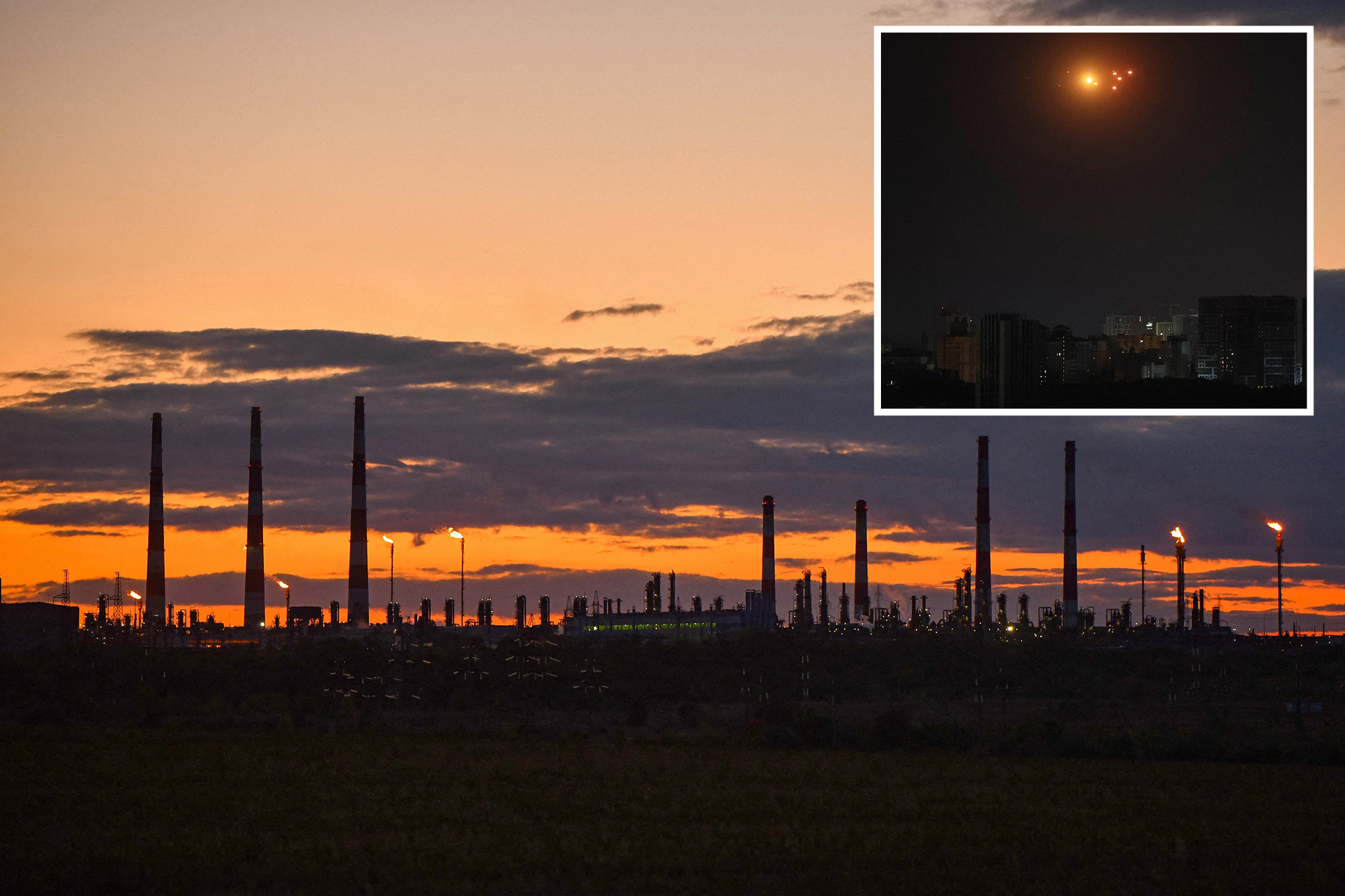World
Ukrainian Drone Strike Halts Operations at Russia’s Largest Gas Plant

A drone strike from Ukraine has led to the partial shutdown of Russia’s largest gas processing plant, the Orenburg facility, following significant damage caused by the attack on Sunday. Officials from Kazakhstan’s energy ministry confirmed that the plant ceased accepting natural gas from Kazakhstan after the incident, highlighting the ongoing conflict’s impact on energy infrastructure.
The Orenburg plant, operated by state-owned gas giant Gazprom, is situated near the border with Kazakhstan. According to regional Governor Yevgeny Solntsev, the drone strike targeted a workshop within the facility, which has an annual processing capacity of approximately 45 billion cubic meters. The immediate effects of the strike include a halt in processing gas output from both the Orenburg oil and gas field and Kazakhstan’s Karachaganak field. It remains unclear whether the entire plant has gone offline or if it is only the section processing fuel from Kazakhstan that has been affected.
Kazakhstan’s energy ministry reported being informed about the emergency situation but noted that Gazprom has not disclosed details regarding the extent of the damage or a timeline for the plant’s recovery. This drone attack is part of a broader Ukrainian campaign aimed at disrupting Russia’s energy capabilities, as Kyiv seeks to weaken Moscow’s capacity to sustain its military operations.
In conjunction with the strike, the Russian Ministry of Defense reported the downing of at least 45 UAVs during the overnight assault, further illustrating the scale of Ukraine’s drone operations. The ongoing attacks on energy infrastructure have contributed significantly to a decline in Russia’s fossil fuel exports, which reached their lowest levels since the onset of the war nearly four years ago. The Centre for Research on Energy and Clean Air indicated that Russia exported an average of $637 million worth of fuel daily last month, marking a 4% decrease from August and a substantial 26% drop compared to September 2024 figures.
Since the summer, at least 18 Russian oil facilities have been targeted, with critical strikes impacting operations in Crimea and causing disruptions for Russian consumers. Ukrainian President Volodymyr Zelensky affirmed his commitment to continuing attacks on Russia’s crude oil refineries, terminals, and depots, describing these actions as “the most effective sanctions — the ones that work the fastest.”
Zelensky emphasized the need for the West to reduce dependence on Russian energy, echoing sentiments expressed by former President Donald Trump regarding NATO members’ energy purchases. He declared, “There should be zero Russian energy in Europe,” while asserting that the United States is prepared to provide ample alternatives to Russian supplies. He noted that the region has the necessary infrastructure to significantly contribute to Europe’s energy independence.
The Orenburg incident underscores the escalating nature of the conflict over energy resources and highlights the ongoing challenges faced by both nations as they navigate a complex geopolitical landscape.
-

 Science4 weeks ago
Science4 weeks agoALMA Discovers Companion Orbiting Giant Red Star π 1 Gruis
-

 Top Stories2 months ago
Top Stories2 months agoNew ‘Star Trek: Voyager’ Game Demo Released, Players Test Limits
-

 Politics2 months ago
Politics2 months agoSEVENTEEN’s Mingyu Faces Backlash Over Alcohol Incident at Concert
-

 World2 months ago
World2 months agoGlobal Air Forces Ranked by Annual Defense Budgets in 2025
-

 World2 months ago
World2 months agoElectrification Challenges Demand Advanced Multiphysics Modeling
-

 World2 months ago
World2 months agoMass Production of F-35 Fighter Jet Drives Down Costs
-

 Science2 months ago
Science2 months agoTime Crystals Revolutionize Quantum Computing Potential
-

 Business2 months ago
Business2 months agoGold Investment Surge: Top Mutual Funds and ETF Alternatives
-

 Top Stories2 months ago
Top Stories2 months agoDirecTV to Launch AI-Driven Ads with User Likenesses in 2026
-

 Entertainment2 months ago
Entertainment2 months agoFreeport Art Gallery Transforms Waste into Creative Masterpieces
-

 Health2 months ago
Health2 months agoGavin Newsom Critiques Trump’s Health and National Guard Plans
-

 Business2 months ago
Business2 months agoUS Government Denies Coal Lease Bid, Impacting Industry Revival Efforts









